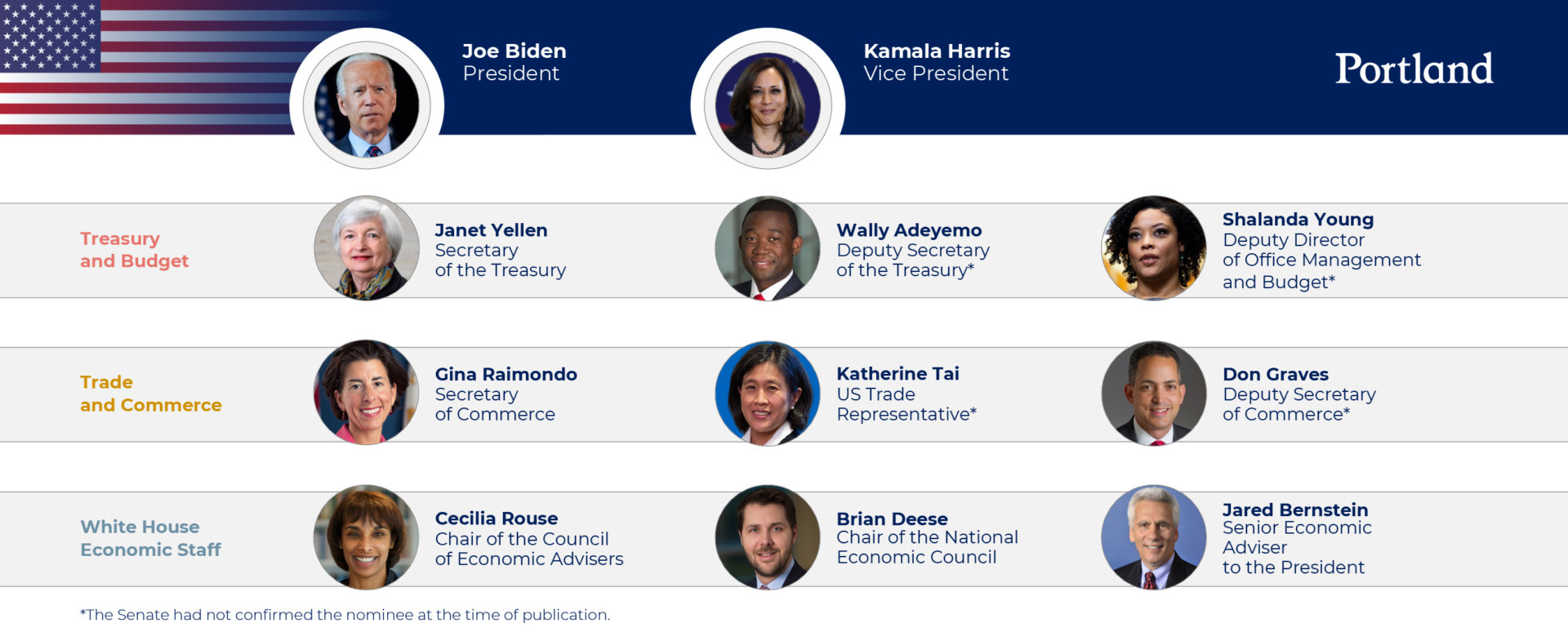President Biden’s departure from the Trump-era agenda
Former President Donald Trump disrupted global trade policies to advance his “America first” agenda. His go-it-alone strategies included entering into a trade war with China, imposing tariffs on long-time allies and upending major trade agreements that, in his view, were unfavorable to US interests.
The Biden administration will reengage with international partners and implement policies that prioritize restoring American leadership in the global economy.
LINGERING FATE OF TRADE DEALS
US Trade Representative, Katherine Tai, promised to rebuild international alliances and resume work with global institutions, such as the World Trade Organization (WTO). A few of the possibilities at play:
- Biden has indicated his support for re-joining the Trans-Pacific Partnership (TPP), a move that has support from senior Republicans as a means of confronting China economically in the pacific.
- Questions remain on how the new administration will proceed with US-EU negotiations and unfinished trade talks that Trump started with the UK and Kenya. However, Biden made clear that he wouldn’t “enter any new trade agreement with anybody until we have made major investments here at home.”
GOVERNING THE DIGITAL ECONOMY
Many nations agree that US tech giants should be required to pay taxes to not just to their own governments but to countries where they have significant presence. A framework to impose global digital tax rules is expected by the end of June, and an agreement by the OECD/G20 Inclusive Framework on BEPS is looking more promising following the Biden administration’s vow to drop his predecessor’s demand for a ‘safe harbor’ rule allowing US companies to opt out of any new taxes. The group of negotiators from nearly 140 countries has yet to come to a consensus on how to implement the proposed digital taxes, although the EU has threatened to move ahead with their own plans if the group fails to agree to a global framework.
US-CHINA TRADE FIGHT
Biden is expected to keep tariffs intact to serve as leverage even as he has ditched several Trump-era policies in his first days in office. The administration seems to be proceeding with caution but has ultimately labeled the trade fight with China a top priority. Trump hoped to lower the trade deficit with tough tariffs on China but Biden will call on allies to jointly address China’s “coercive and unfair” trade practices.
LEGISLATIVE CHALLENGES
Despite Biden’s aim to chart a new course for US trade following four years of Trump-induced trade disputes, the expiration of Trade Promotion Authority (TPA) could delay any significant changes. TPA expiration would remove Biden’s executive authority to fast-track legislation and streamline negotiations, leaving trade policy to linger in Congress. Biden can make a case for how he would use his presidential powers with TPA, but Trump’s frequent use of the rule and questionable application of numerous national security tariffs could hinder its renewal.

